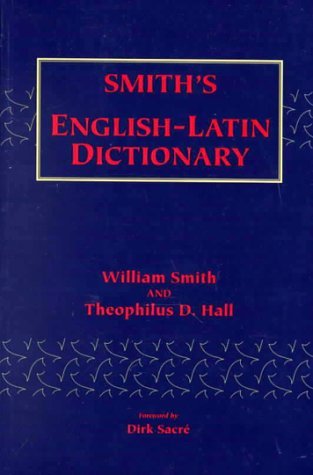Bolchazy-Carducci is one of those little success stories that can happen “only in America.” Where else could a Latinist, who once studied for the priesthood, start a publishing firm devoted to putting out teaching aids for Latin teachers and end up with a catalogue that includes the most successful computer instruction series on Latin (Artes Latinae), a Latin version of How the Grinch Stole Christmas, and a popular classical journal—to say nothing of the best list of Slovak books in the United States? Browsing through their amazing catalogue (online at www.bolchazy.com) is a bit like taking a stroll through “The Old Curiosity Shoppe”: You never know what you are going to find. Many homeschoolers and schoolteachers have found their way to Bolchazy-Carducci. Many more should follow their example.
Several recent B-C productions are valuable additions to the professional or amateur classicist’s library. Among a long list, I mention only two: a very useful CD by Waldo Sweet (creator of Artes Latinae); and Words of Wisdom From the Ancients: 1000 Latin Proverbs, a compendium of Latin sententiae, is not only a helpful collection of Roman wisdom and a useful aid to building Latin vocabulary, but a boon to the writer and editor who may occasionally forget the phrasing or source of a Latin tag. (B-C’s World Dictionary of Foreign Expressions might be even more useful, though I have only had a chance to see, not to peruse, the volume.)
B-C also publishes collections of articles on a variety of ancient topics, such as the poetry of Vergil. Rome and Her Monuments contains helpful articles on Roman topography by Harry Evans and Hugh Lee as well as interesting observations on Roman literature by Jane Whitehead and Helen North and a variety of generally sensible explications of the Roman inheritance.
Perhaps the most important volume issued in the past year is a reprint of Smith’s English-Latin Dictionary. (To be precise, this is a reprint of the 1871 American edition of Sir William Smith’s and Theophilus Hall’s A Copious and Critical English-Latin Dictionary.) Why is an English-Latin dictionary so valuable? The answer is simple. Speaking as a former teacher of Latin, I have to say that the most important—and most neglected—part of Latin instruction is writing in Latin. At the introductory level, this means that Latin vocabulary (indeed, the vocabulary of any foreign language) should be learned from English to Latin. Any fool, without a day’s instruction, might guess that aqua means “water,” but only a Latin student, when asked the Latin word for water, can answer: “aqua, aquae, feminine.”
At higher levels, the problem becomes one of Latin composition, and since even good students cannot remember everything and are unlikely to know, for example, the words for (opening the book at random to pp. 340-41) “gizzard,” “glare,” “glass,” or “gleam,” he (more likely she, these days) needs to be able to consult a good English-Latin dictionary. Most Latinists would agree that such a book does not, in fact, exist, and that is why we have to fall back on Smith, which, for all its faults and slapdash criteria (some of which are pointed out in Dirk Sacre’s useful introduction to this edition), is still the best thing going. In my previous life as a Latin teacher, I never actually owned a copy of Smith and had to use it in the library. Now, no first-year Latin teacher has an excuse for not owning it.
Recent additions to the B-C catalogue include a selection of Seneca’s Moral Epistles, a bilingual edition of Francis Church’s editorial “Yes, Virginia, There Is a Santa Claus,” a source guide to ancient Rome, and a volume entitled The Unknown Socrates, which provides testimonia (in translation) with comment from late antiquity on the life and teachings of Socrates. At Chronicles, we intend to do a better job of informing our readers of the books and resources that can help them to pursue a lifetime of self-education. In the meantime, they can either check out the online edition of the Bolchazy-Carducci catalogue or write to 1000 Brown St., Unit 101, Wauconda, Illinois 60084.
[Smith’s English-Latin Dictionary, by William Smith and Theophilus D. Hall (Wauconda, IL: Bolchazy-Carducci Publishers) 754 pp., $79.95]

Leave a Reply